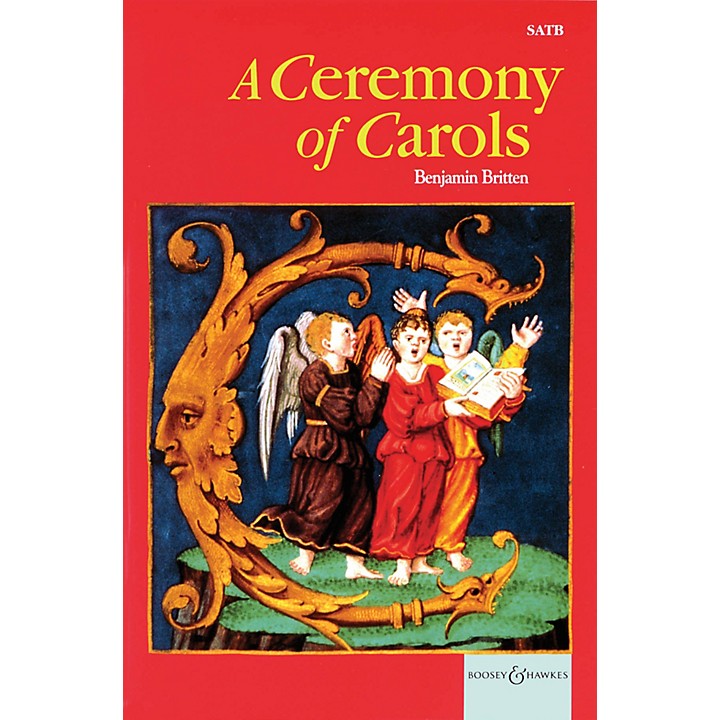for boys' or female voices and harp (piano in extremis but with alterations and omissions) There is also a version for SATB and harp arranged by Julius Harrison Texts: Latin and English 1. Procession (using a variant of the Magnificatantiphon for the second Vespersof the Nativity of Our Lord) 2. Wolcum Yole! (anon.) 3. There is no rose (anon.) 4a. That yongë child (anon.) 4b. Balulalow (James, John and Robert Wedderburn) 5. As dew in Aprille (anon.) 6. This little babe (Robert Southwell) 7. Interlude (harp solo) 8. In Freezing Winter Night (Robert Southwell) 9. Spring Carol (William Cornish) 10. Deo gracias (anon.) 11. Recession (as for Procession) Publisher: Boosey & Hawkes Difficulty level: 3 The Ceremony of Carols is one of Britten's best-known and most-performed works. It is a brilliantly conceived and dramatic concert work which sees the voices process to their places singing unaccompanied plainsong and, at the end, processing out again to the same chant. These movements can also be accompanied but strictly only if the voices do not process. The final Alleluia can be repeated as many times as necessary to get the singers to and from their destination. The carols are for three-part childrens voices (though, of course they can be sung by female adults as well) and they form a two-part work around a central Interlude for harp which is based on the plainsong from the Procession. Variety is the key word here as all the carols have such individual identities. The forthright Wolcum Yole!, the deliciously lyrical There is no Rose, the swinging Balulalow, the fiery and dramatic This little Babe all contribute to a work which is a feast of discovery throughout. Lovely solos and duos add further colour and the harp part, an inspired choice of accompaniment, enriches, colours and surrounds the voices with its pictorial musical imagery. If anything shows Britten's genius for writing for voices it must be this work. The challenges here are in creating a real equality between voice parts, fielding a confident pair of soloists, and making the most of the wonderfully colourful poems Britten has chosen to set. Pronunciation is not really an issue, but when I recorded this work with the Finzi Singers I decided to follow the example of Sacred and Profane and use authentic medieval pronunciation for which an expert coach was necessary. It brings an added element of colour to a familiar aural experience. Duration: 22 minutes Paul Spicer, Lichfield, 2011

